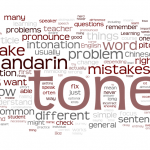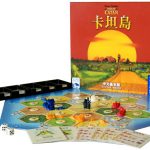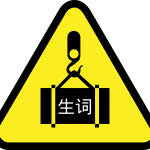Articles in the ‘Advanced’ category Page 18
-
Spaced repetition is not limited to flashcards
Spaced repetition is important for learning anything, but especially vocabulary in a foreign language like Chinese. However, there’s much more to spaced repetition than vocabulary flashcard apps! Even if you dislike such apps, make sure you incorporate spaced repetition in some other way.
Read → -
Looking up how to use words in Chinese the right way
Looking up how to express something in Chinese is not as easy as it looks. Assuming that a word, especially a verb, can be used the same way in Chinese as in your native language usually results in incorrect or awkward sentences. Stop assuming and look things up properly instead!
Read → -
Why you should preview before every Chinese lesson
Previewing before every lesson is extremely important, yet only a minority of students actually do it. By spending more time before the lesson, you learn more without necessarily spending more time, and you will feel better about it too.
Read → -
Three factors that decide how much Chinese you learn
Many things determine how much progress you make. This article is an overview of three factors you should always keep in mind when planning how to reach your goals. You need all three!
Read → -
Obligatory and optional tone change rules in Mandarin
As if learning basic tones wasn’t enough, tones in Mandarin also influence each other and change depending on context. Some of these tone change rules you have to learn, but others are better left alone and will be absorbed automatically over time.
Read → -
Learn Chinese implicitly through exposure with a seasoning of explicit instruction
Should you learn Chinese implicitly through exposure and usage, or explicitly through description and instruction? The answer is that adults need both, but that explicit learning is often used too much.
Read → -
7 kinds of tone problems and what to do about them
Tones are tricky to learn and students often encounter many different kinds of problems. Since the solution to them are very different, it’s important to understand what the problem actually is before you try to do something about it!
Read → -
Learning Chinese by playing board games
Playing board games in Chinese is an entertaining and powerful way of learning the language. Depending on what game you choose, it’s suitable for beginners and advanced students alike. Apart from playing, the game itself can also work as a common point for discussions and socialising.
Read → -
Expanding your Chinese with 一步一个脚印
一步一个脚印 is a blog about translating and interpreting Chinese, providing high quality posts about vocabulary and expressions in Chinese and English, as well as interpretation and translation exercises.
Read → -
Overcoming the problem of having too many Chinese words to learn
Learning words is very important, but how should you deal with the fact that there are so many of them to learn? This article discusses the problem of having too many words to learn and suggests some solutions to get around the problem.
Read →









